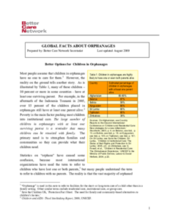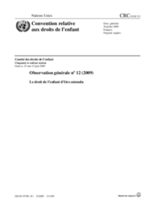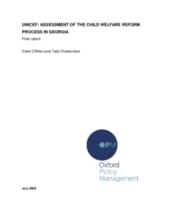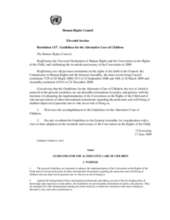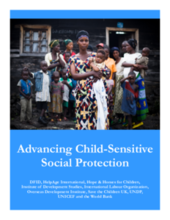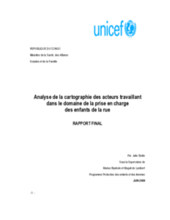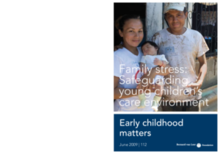Demographic Data
|
Sources: World Bank, UNICEF,UNDP HDR 2015, DHS 2014 |
Displaying 13241 - 13250 of 14347
This study uses recent data from published studies in sub-Saharan Africa to illustrate deficits and document community responses for children who have lost parents to the HIV/AIDS pandemic.
Le droit de l’enfant d’être entendu
This report assesses progress in the reform of child welfare services in Georgia between 1999 and 2009.
This report is the result of a workshop held with a group of young care-leavers drawn from ten different charitable children’s institutions or rehabilitation centres and of a questionnaire carried out on the young care-leavers.
This resolution was submitted by the Human Rights Council to the General Assembly on 17 June 2019 for consideration with a view to the adoption of the Guidelines for the Alternative Care of Children on the twentieth anniversary of the Convention on the Rights of the Child.
This joint statement aims to build greater consensus on the importance of child-sensitive social protection.
This document contains revised alternative care guidelines for Ethiopia. It discusses how development intervention has shifted from a needs based approach to a rights based approach.
Au Congo, le phénomène social des enfants de la rue existe depuis les années 80 et a connu une recrudescence à la suite des conflits armés des années 90. Il s’est aggravé en raison de l’affaiblissement de la capacité de prise en charge des familles, de leur paupérisation et de l’accroissement du nombre de familles monoparentales (décès, divorce), recomposées ou des unions hors mariage.
Examines the most effective ways of dealing with and diminishing parental stress, and what are the factors that contribute to children’s resilience and coping mechanisms in challenging care environments in particular contexts

